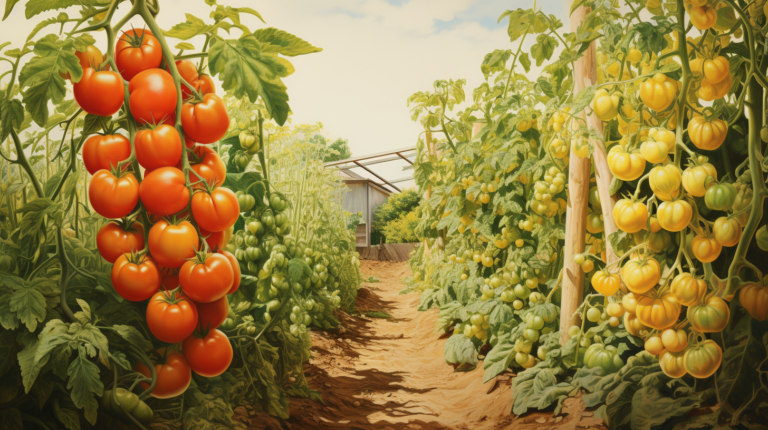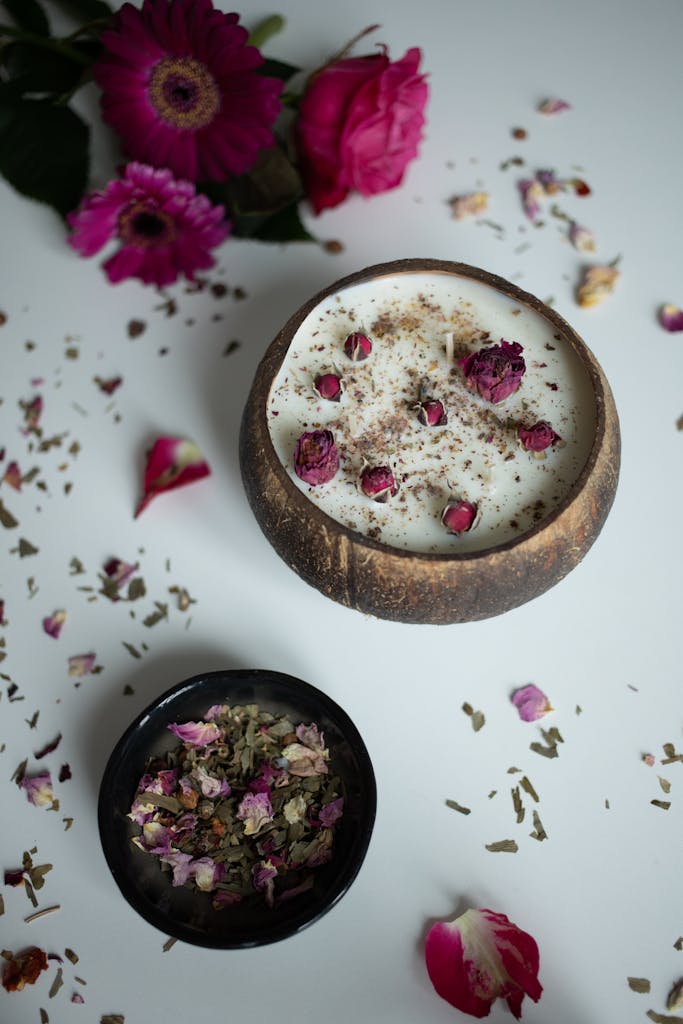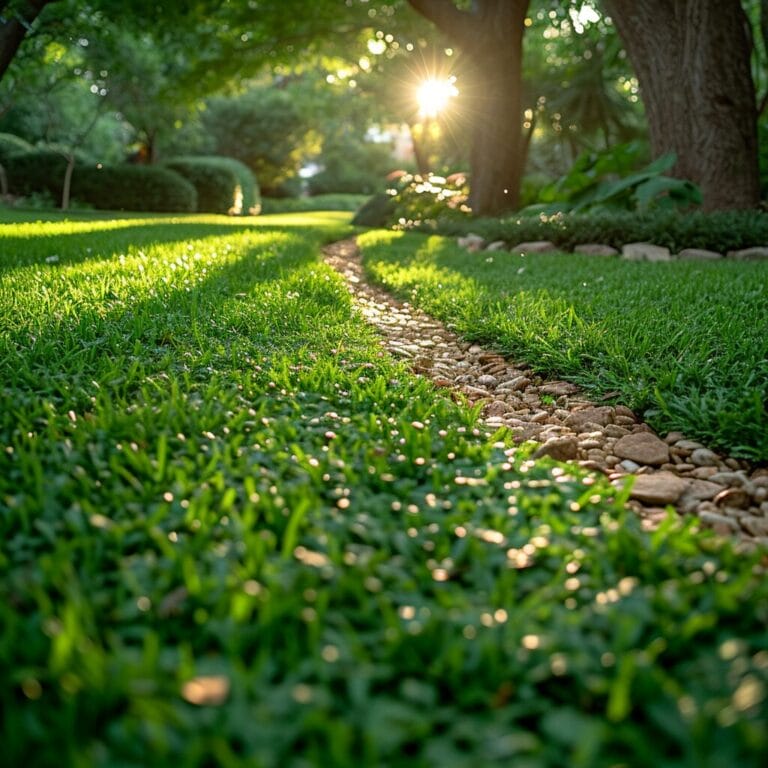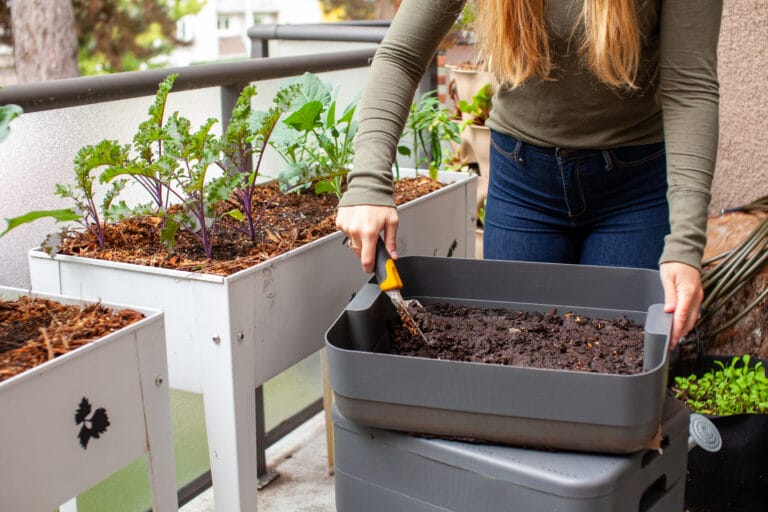Are squirrels transforming your garden into a fun-zone, causing chaos amidst your prized blooms? Do not lose hope! Nature has a solution–there are plants that are resistant to squirrel disturbances.
Certain plant species deter these little critters with their strong scents or tastes. Transform your garden into a flourishing fortress by imbuing it with plants that repel squirrels. Let’s take a journey into this naturally squirrel-proof world!
Key Takeaways
- Squirrels often inflict substantial damage on gardens, digging holes, gnawing on plants, and stripping tree bark bare.
- Planting squirrel-resistant varieties like daffodils, alliums, fritillaries, hyacinths, and lily of the valley can safeguard your garden.
- Daffodils emit an unpleasant smell from their bulbs; alliums bear a robust scent that repels squirrels; fritillaries offer a potent aroma that squirrels find unattractive, while hyacinths emit a severe scent and bear toxic bulbs. Lily of the Valley wafts a sweet floral scent that deters squirrels but is also poisonous to humans and pets.
- Equipping your garden with these squirrel-resistant plants lets you relish a thriving, beautiful space without the stress of squirrel-induced destruction.
The Importance of Squirrel Resistant Plants
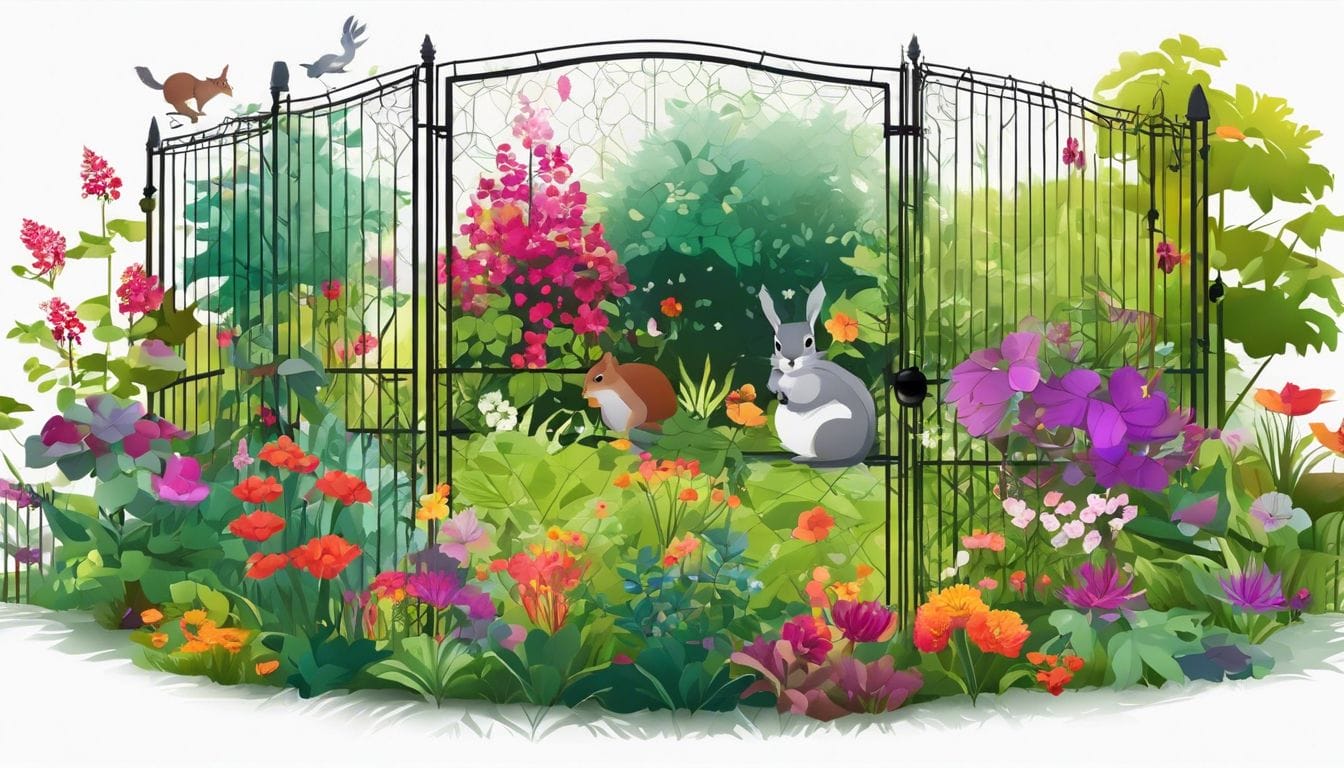
Squirrels can wreak havoc on gardens, destroying your beloved plants and flowers. Incorporate squirrel-resistant plants to inhibit these critters and maintain the serenity of your garden.
Watch this video for more insights
Why Squirrels Are Detrimental to Gardens
Unfortunately, gardens are squirrels’ playgrounds where they dig up soil, bury nuts, and, in the process, harm your plants. They also tend to munch on plant bulbs and tree bark in their search for food, further damaging your garden’s reverse creation. Squirrels might unearth an appetizing bulb or sprouting seedling and bury it elsewhere; a frustrating exercise indeed! With squirrel activities at high, you might notice parts of your garden appearing bare or damaged.
Therefore, keeping the squirrel population in check or deterring them from tumbling into your garden is essential to prevent significant damage.
Daffodils: A Natural Squirrel Repellant
Aside from being charming spring blooms, Daffodils also serve as a natural squirrel deterrent in your garden. Let’s delve into the functionality of these sun-kissed flowers and their beneficial impact on garden protection.
Explore more about daffodils in this video
What Makes Daffodils Special
Daffodils, appearing as towering, bright pinnacles of spring, possess six petals and a trumpet-like center named a corona. Their colors vary from predominantly yellow or white to sporadic orange and pink.
Each stem upholds one bloom, exposing the flower head over its foliage. Sunlight, constituting at least half of the day, is vital for optimal growth. What makes it peculiar to squirrels is the odd smell emitting from their bulbs!
How Daffodils Deter Squirrels
Daffodils are no friends to squirrels. These vibrant blooms harbor an ingenious spirit that discourages squirrel interest. Its bulbs are toxic, convincing squirrels to steer clear. Additionally, the scent that might be soothing to us is detestable to squirrels, causing them to maintain their distance. Hence, these flowers act as guardians of your garden, driving away the hungry munchers!
Alliums’ Power to Repel
You can turn to allium plants to naturally fortify your garden against squirrels. These intriguing flowers not only beautify your garden but also harbor the extraordinary ability to deter squirrels.
Let’s delve deeper into the repelling prowess of it and its capacity to guard your precious garden.
Watch this video to better understand alliums
All About Allium Plants
Allium plants are formidable in keeping squirrels at bay, primarily due to their robust odor. This genus includes favorites like onions and garlic. These plants demand full sunlight and can withstand dry conditions.
Their flowers display various colors, from pink to red, white, and purple. Pests, in general, are averse to it due to the smell they emit.
These plants can also withstand severe winter, blooming beautifully in USDA zones 3 through 9. Therefore, you can freely plant alliums if you reside anywhere in these zones. They are an absolute favorite among gardeners for their ease of care and minimal water requirement.
Why Squirrels Avoid Alliums
Alliums, including onions and garlic, generate a pervasive smell that squirrels detest. This is primarily due to its sulfurous compounds, creating an odor that repels squirrels and similar pests.
Squirrels prefer to distance themselves from plants emitting distinct smells, making it a great choice if you’re aiming to keep squirrels away. Its powerful aroma acts as a natural squirrel deterrent, ensuring your garden is safeguarded against these persistent creatures.
Thus, if you desire a squirrel-resistant garden, consider planting alliums!
Fritillaries: Keeping Squirrels Off Your Garden
Fritillaries, with their distinctive appearance and potent smell, are a naturally unwelcome sight for squirrels. By including these bell-shaped flowers in your garden, you protect it from a squirrel’s onslaught.
Overview of Fritillaries
Fritillaries exhibit a unique layout with their bell-shaped flowers, embodying the vibrant family of lilies. Radiating multiple colors, such as hues of purple, pink, yellow, and white, fritillaries are a visual delight.
These unique flowers rise tall on long stems, producing several blooms at once, originating typically from bulbs. Fritillaries prefer well-drained soil, thriving brilliantly in patches exposed to full sun or partial shade.
These flowers also attract important pollinators like bees and butterflies by being low-maintenance, all the while keeping squirrels at bay. If a squirrel-protected garden is what you desire, fritillaries are a charming addition.
Fritillaries’ Role in Keeping Squirrels Away
Besides their enchanting beauty, fritillaries pack a punch in deterring squirrels. Their strong fragrance, unattractive to squirrels, effuses a naturally discouraging environment. Whether you opt for perennial or annual growth, fritillaries will enhance your garden’s beauty while keeping those fluffy-tailed invaders nearby.
Why Hyacinths are Unappealing to Squirrels
Hyacinths, their radiant colors matched with a delightful fragrance, are an elegant addition to any garden. Interestingly, their strong scent upset squirrels, making them an excellent deterrent.
Find out more about the wonders of hyacinths and how they are a natural protector of your garden.
Understanding Hyacinths
Hyacinths generate a scent that repels squirrels, deterring them from invading your garden. Their bulbs are toxic to squirrels, making the flowers even more unattractive.
Hyacinths are recognized for their comprehensive ability to deter squirrels, protecting your garden from the associated squirrel damage. You can effectively repel squirrels by cultivating hyacinths shielding your precious plants and flowers.
Hyacinths’ Role in Repelling Squirrels
Besides their charming beauty, hyacinths possess the great advantage of being squirrel-repellent! The strong aroma they emit is not appreciated by squirrels, essentially keeping them away.
Furthermore, the bulbs of hyacinths bear toxicity, making them even less tempting for squirrels. By strategically placing these flowers around your garden, your green sanctuary will be well-protected against squirrel invaders.
Can Wind Tolerant Plants Also Repel Squirrels in a Garden Setting?
Can wind tolerant plants for pots also repel squirrels in a garden setting? The answer depends on the specific plant. While some wind tolerant plants like lavender and rosemary are known to repel squirrels with their strong scents, others may not have the same effect. It’s important to research and choose the right plants if you want to deter these furry little visitors from your garden.
Lily of the Valley: A Beautiful Barrier Against Squirrels
Lily of the Valley, resplendent with its sweet scent and dainty white flowers, is also a potent squirrel deterrent. Its toxicity discourages squirrels from venturing into your garden.
Let us unveil the various aspects of it and its role in maintaining a squirrel-free garden.
About Lily of the Valley
Lilies of the Valley exude a sweet, floral scent that keeps squirrels at bay. Recognized for their heart-shaped leaves and ground-cover growth, these plants contain toxic substances that squirrels find unappetizing.
However, remember that these plants are also toxic to humans, cats, and dogs. While they guard against squirrels, handling them with care is vital, especially if you have pets or children at home.
Why Squirrels Avoid Lily of the Valley
While humans may enjoy the sweet, floral scent of Lily of the Valley, squirrels perceive it as a repellent. They usually steer clear of plants with strong scents like this one, making it a powerful natural deterrent for your garden.
However, due to its toxicity, precautions must be taken when incorporating it into your garden, notably if you have children or pets.
Conclusion: Build a Squirrel-Proof Garden with Resistant Plants
Incorporating squirrel-resistant plants into your garden is an effective way to naturally repel squirrels and protect your array of plants. By choosing plants with either strong, palpable scents or inherent toxins that squirrels find objectionable, such as daffodils, alliums, fritillaries, hyacinths, and lily of the valley, you wield the power to create a squirrel-unfriendly environment.
Your beautiful, thriving garden can then be admired without fear of squirrel destruction. The FAQ section below addresses some common concerns about squirrel-resistant plants and their role in safeguarding your garden.
After keeping squirrels at bay with these squirrel-resistant plants! Next, discover if the vibrant garden phlox can stand up to deer in your quest for a resilient garden.
FAQs
What can repel squirrels?
Plants such as daffodils, alliums, and lily of the valley exude strong smell or taste that squirrels find unpleasant.
How do squirrel-resistant plants protect your garden?
They repulse squirrels with their pungent odors or unpalatable tastes, preventing them from damaging susceptible plants in your garden.
Can flowers also deter squirrels?
Yes, flowers like onions and garlic bloom to deter pests, including squirrels, with a strong smell similar to fly-repellents.
Are there natural squirrel repellents for vegetable gardens?
Yes, plants like peppermint, due to their robust smell, effectively repel squirrels and protect your vegetable garden.
Can planting certain plants deter local critters, too?
Yes, a range of deterrent plants can not only keep various types of squirrels away but also other animals.
Are poisonous flowering plants useful in pest control?
Yes, plants producing chemicals like lycorine found in certain bulbs can deter pests, making a garden less enticing to animals like squirrels.


